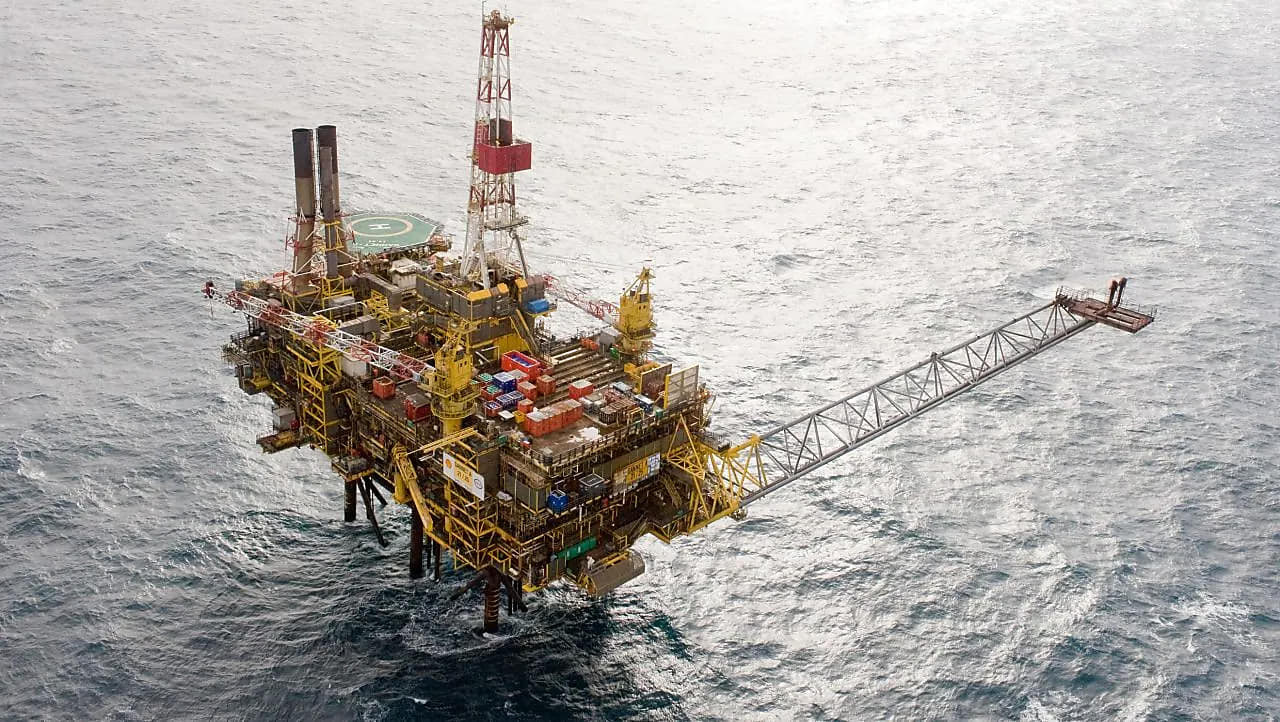https://www.europesays.com/1943964/ Shell presents gas & LNG as safe bets but keeps low carbon and renewable tools in play #CarbonCaptureAndStorage #ccs #decarbonization #EnergySecurity #EnergyTransition #gas #GasPrice #LiquefiedNaturalGas #lng #LNGPrice #LowCarbon #NaturalGas #OilAndGas #shell
Recent searches
Search options
https://www.europesays.com/1925725/ ‘Pragmatic’ offshore energy investment policy key to ensure UK’s supply chain stays put #CarbonCaptureAndStorage #ccs #decarbonization #Decom #decommissioning #EnergySecurity #EnergyTransition #GreatBritain #hydrogen #NorthSea #OEUK #OffshoreEnergiesUK #OffshoreEnergy #OffshoreEnergySupplyChain #OffshoreRenewables #OffshoreWind #OilAndGas #SupplyChain #UK #UnitedKingdom
https://www.europesays.com/1817253/ Life-cycle assessment of oil recovery using dimethyl ether produced from green hydrogen and captured CO2 #CarbonCaptureAndStorage #CrudeOil #CrudeOilPrice #EnvironmentalImpact #FossilFuels #HumanitiesAndSocialSciences #multidisciplinary #OilPrice #petroleum #science
https://www.europesays.com/1807326/ Wyoming Senate approves $10 million enhanced oil recovery stimulus | Local News #CarbonCapture #CarbonCaptureAndStorage #CarbonDioxide #CarbonSequestration #ClimateChange #ClimateChangeMitigation #ClimateChangePolicy #ClimateForcing #CrudeOil #CrudeOilPrice #Energy #EnhancedOilRecovery #EnvironmentalImpactOfFossilFuels #EnvironmentalPolicy #ExtractionOfPetroleum #FossilFuels #GreenhouseGases #Legislature2025 #OilPrice #petroleum #stimulus
Im neuen Jahr geht es direkt weiter mit der Vortragsreihe der #S4F Osnabrück. Diesen Mittwoch geht es um #CarbonCaptureAndStorage mit Schwerpunkt #DACCS. Vortragende - bin ich diesmal selbst.
Wie immer wird der Vortrag aufgezeichnet. Wenn Ihr die Diskussion auch mitgekommen möchtet, dann geht das nur im google-freien Livestream, der dann hier läuft:
https://osnabrueck.scientists4future.org/klimawandel-und-klimaschutz-online/
Selbstredend beginne ich mit einem kurzen Update wo wir stehen bzgl. #Klimakrise
@jbond Will #Labour even try? Their #FossilFuel masters have already conned them into pouring billions into useless #CarbonCaptureAndStorage schemes. There will be nothing left to spend on infrastructure which would actually be useful.
New powder that captures carbon could be ‘quantum leap’ for industry https://www.theguardian.com/environment/2024/nov/29/covalent-organic-framework-carbon-capture-powder #Carboncaptureandstorage(CCS) #Greenhousegasemissions #Climatecrisis #Environment #California #Pollution #Science #USnews
@urlyman #CarbonCaptureAndStorage which #Labour, like everyone else, knows fine well is a #GreenWashing scam by the #FossilFuelLobby which cannot work, will not work, and isn't actually even intended to work.
It's just a channel to funnel even more public money to some more of Labour's donors.
Countries could use nature to ‘cheat’ on net zero targets, scientists warn https://www.theguardian.com/environment/2024/nov/18/countries-nature-cheat-net-zero-targets-paris-agreement-cop29 #Carboncaptureandstorage(CCS) #Greenhousegasemissions #Carbonoffsetting #Climatescience #Climatecrisis #Environment #Cop29
Just so you fully understand what #Starmer's pet millipede's £21,700,000,000 (yes, that's twenty one point seven BILLION pounds) is going to buy us.
#Austerity
#CarbonCaptureAndStorage
#CCS
#CorporateGreed
#Corruption
#ClimateGenocide
@lyndamerry484 Yea but, these are not carbon emissions which would be made anyway. These are carbon emissions from new gas fuelled power stations, and if we put the investment instead into better public transport and more energy storage, we wouldn't need to build either the gas power stations or the #CCS #CarbonCaptureAndStorage plants.
@lyndamerry484 No, it's not. #CCS #CarbonCaptureAndStorage is a very carbon-expensive way of pumping carbon into underground storage from which it will almost certainly later leak. So the total amount of carbon which will ultimately reach the atmosphere is much greater than it would otherwise be, and we have no way of predicting when -- and how dramatically -- those leaks will happen.
While we're on this, a coalition of climate scientists have urged the UK government to defund #CarbonCaptureAndStorage #CCS proposals as, essentially, #greenwashing and distraction from actual attempts to reduce carbon.
New research suggests IPCC AR6 greatly over-estimated subsurface carbon storage potential at rates of 1 – 30 GtCO2 yr−1 by 2050. “These projections, however, overlook potential geological, geographical, and techno-economic limitations to growth.”
Research suggests a global storage rate of 5-6 GtCO2 yr−1, with the United States contributing around 1 GtCO2 yr−1.
#CCS #CarbonCaptureAndStorage
#ClimateCrisis
https://www.nature.com/articles/s41467-024-51226-8
Season 3 Episode 3: Carbon Capture and Storage with Prof Mike Bickle
In this episode, Christina talks to Professor Mike Bickle about what methods for carbon capture and storage are the most promising (and the most likely for us to engage in), what some of the dangers are, what it would take to deploy carbon capture and storage at the scale required, and how long it might take us to bring an end to the global warming we’ve created. Prof. Bickle is professor emeritus at the Earth Sciences Department at the University of Cambridge.
Conquering climate change for our survival and that of much of the rest of the biosphere calls for more than attaining net zero emissions of greenhouse gasses to the atmosphere. We also need to actively remove much of the 140 extra parts per million of carbon dioxide currently up there in the atmosphere thanks to our burning of fossil fuels and destruction of so much of Earth’s biosphere. Both attaining net zero and going beyond it will take carbon capture and storage. This means capturing carbon dioxide from power plants and other point sources and from our agricultural activities before it gets into the atmosphere, as well as capturing carbon dioxide already in the atmosphere. Then, we need to store that carbon somewhere safely away from the atmosphere for at least a few thousand years.
UK may need new gas-fired power stations to decarbonise grid https://www.theguardian.com/environment/article/2024/jul/23/uk-may-need-new-gas-fired-power-stations-to-decarbonise-grid #Carboncaptureandstorage(CCS) #Energyindustry #Environment #Fossilfuels #Energy #Labour #UKnews #Gas
"If you're going to try to reduce greenhouse gas emissions by capturing CO2, you've got to capture almost all the emissions and you've got to do it year in and year out for decades."
You've also got to store it in ways that don't involve extracting more fossil fuel.
#CarbonCaptureAndStorage
#ClimateChange
#ClimateEmergency
#ClimateFraud
"The report says capture is limited by both technical issues and the demand for carbon dioxide from the energy industry, which uses the gas to extract more oil from depleting reserves" --
So: the carbon from #CarbonCaptureAndStorage plants is used to pump MORE oil out of the ground; and if the oil industry won't buy it, the CCS plant is bypassed.
This is not an attempt to mitigate #ClimateChange at all -- and never was.
Wind, solar and off-river pumped hydro are all the solutions we need for 100% #EnergyTransition in Australia.
Debating #Nuclear is a Dutton trap, #carbonCaptureAndStorage a #FossilFuels trap, both expensive fantasies. Use of #CarbonOffsets is Labor’s trap with problematic integrity.
“These all distract from the real changes we need to make.”
#ClimateCrisis #Australia #Renewables
https://johnmenadue.com/the-cut-through-message-wind-solar-and-pumped-hydro-are-all-we-need-and-cheaper/
@rlpaulprodn @chrisgerhard And what is it they're proposing to capture from the air? It's #Carbon. And what are they proposing to do with that carbon? Why, store it.
Which is why the process is called #CarbonCaptureAndStorage .
I'm so glad you're keeping up at the back.


